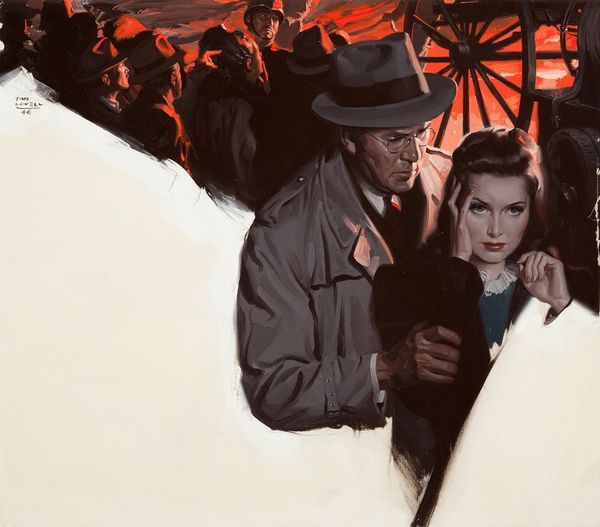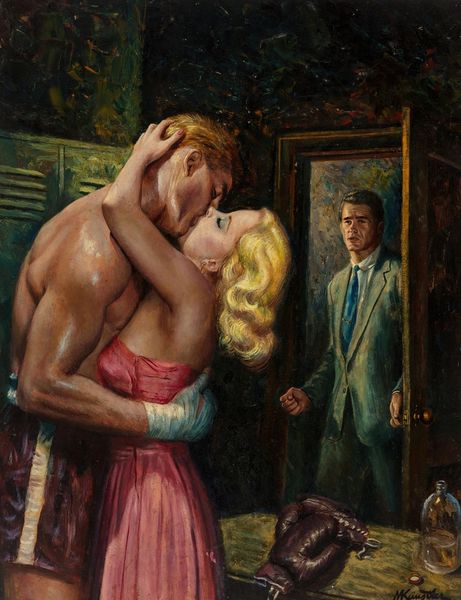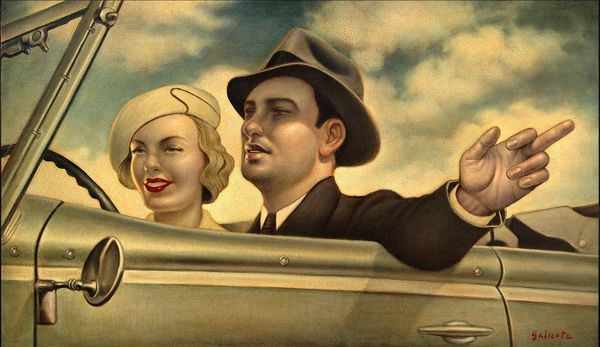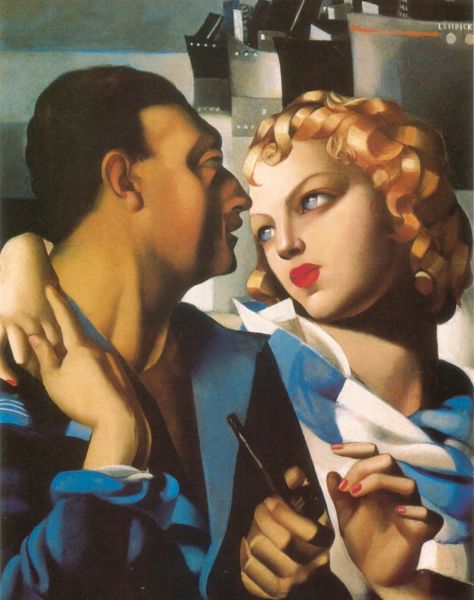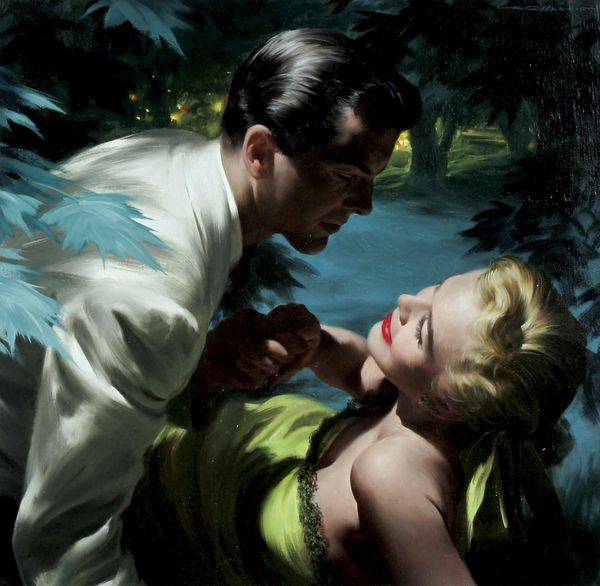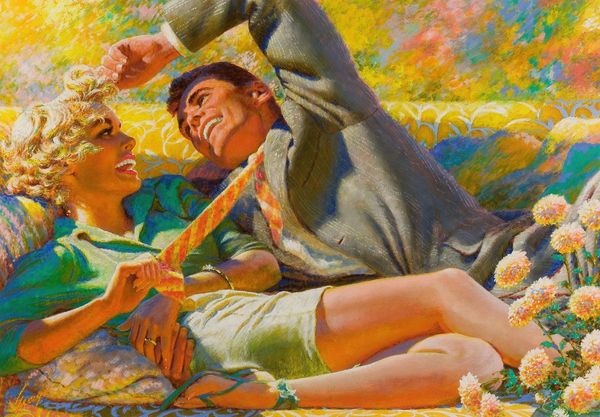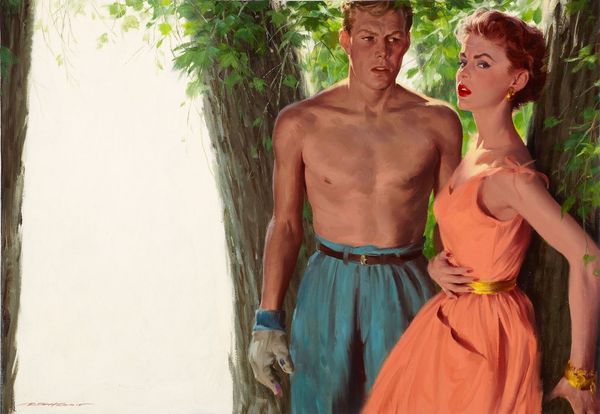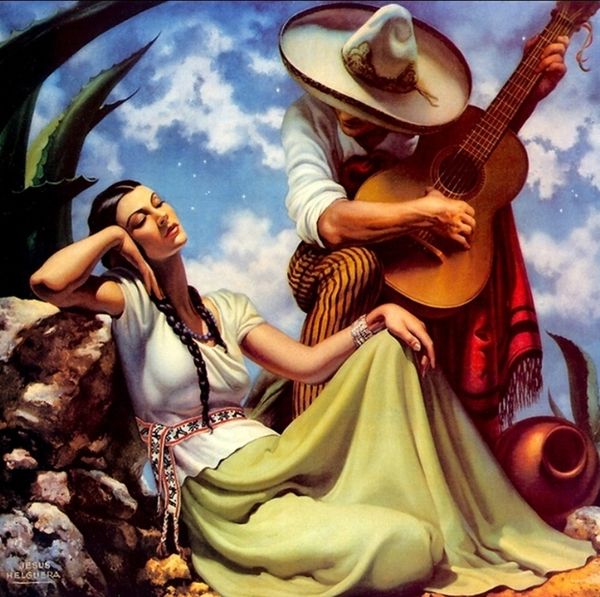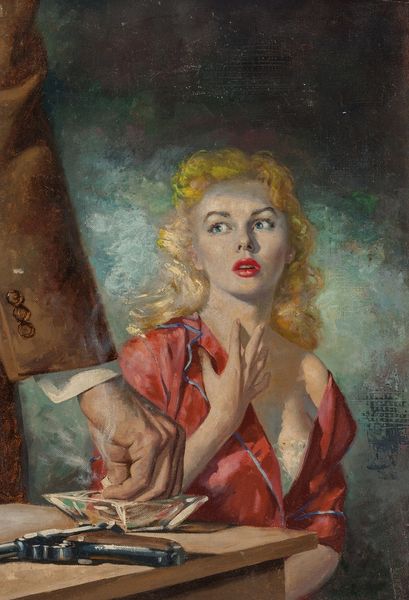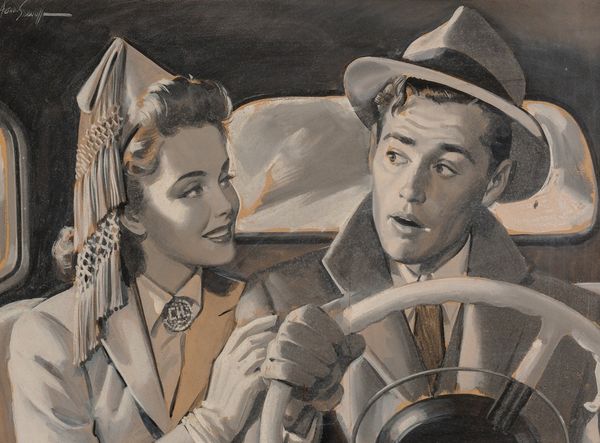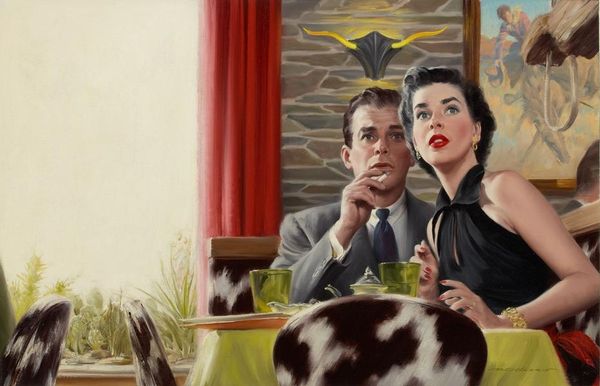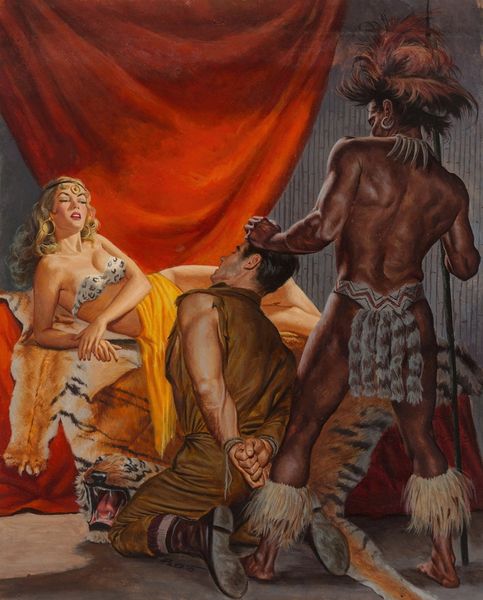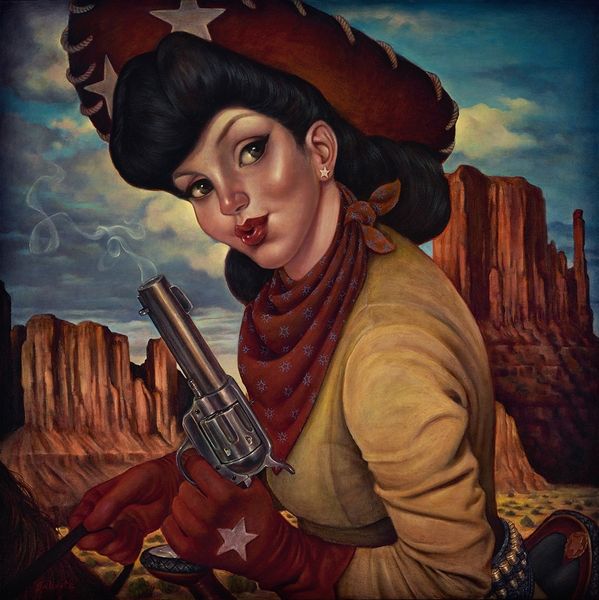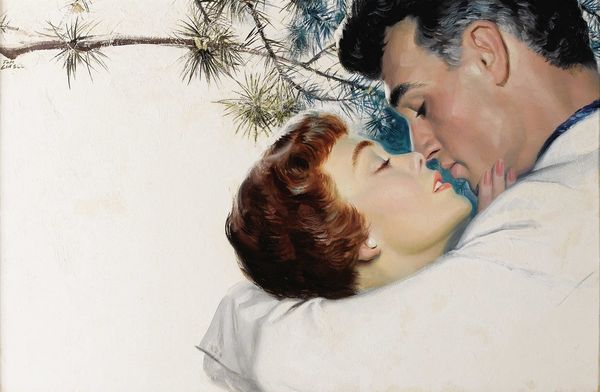
oil-paint
#
portrait
#
figurative
#
character portrait
#
portrait
#
oil-paint
#
figuration
#
portrait reference
#
portrait head and shoulder
#
romanticism
#
animal portrait
#
portrait drawing
#
genre-painting
#
facial portrait
#
portrait art
#
fine art portrait
#
digital portrait
Copyright: Modern Artists: Artvee
Editor: So, this is "A Happy Ending" by Danny Galieote, an oil painting, though undated. It strikes me as simultaneously romantic and strangely artificial; is it the theatrical lighting? What draws your eye when you look at this piece? Curator: The immediate juxtaposition of forms is striking. We have the clear foregrounding of the actors juxtaposed against the artificial background of what might be a soundstage, and, on the opposite side, an even more unnatural film camera. Notice how Galieote contrasts hard mechanical lines with the soft, almost blurred edges of the figures. Editor: Yes, I noticed how the textures play against each other! The smooth skin of the figures versus the rough, almost industrial feel of the camera and backdrop. The light seems so purposefully placed too, like a Renaissance painting almost. Is the symbolism here very blatant? Curator: The composition guides us to reflect on our expectations. Consider the visual rhyme between the woman's blonde hair and the artificial desert light. Both are bright focal points but completely manufactured. Does the color choice create additional connections? Editor: Interesting... the yellow tones definitely tie her to the scene itself, making it all feel a bit too perfectly staged. It’s as though their emotions are being manufactured as much as the scene itself. Curator: Precisely! And doesn't this observation underscore the overall artifice and prompt reflection on our cinematic illusions? How the painter intentionally reveals the mechanics behind this emotional mirage? Editor: I hadn't thought of that angle! I was so focused on the 'romance' narrative that I missed how deliberately constructed the whole scene is, like a commentary on movie-making itself. Curator: The painting creates the framework for multiple readings, so what is important is to be conscious of this potential and its relationship with the artist’s work and process. The composition highlights and deconstructs those illusions.
Comments
No comments
Be the first to comment and join the conversation on the ultimate creative platform.
